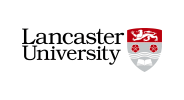© Pint of Science, 2025. All rights reserved.
One of the biggest mysteries in the universe is us - humans. Tonight, we delve into the development of the human mind from before birth through to adulthood, as well as make reflections on our basic needs as humans. This includes a range of topics, starting with perceptions in the womb, right through to the psychology of suicide.
Learning in the womb: Environmental influence on brain development before we are born
Dr Kirsty Dunn
(Lecturer in Developmental Psychology at Lancaster University)
The prenatal period is a time of intense and rapid development, and our brain and sensory systems develop to surprisingly sophisticated levels. How do the things we hear, see, taste, and feel before birth influence our abilities and preferences for what we like to see and listen to after birth? This talk will discuss the importance of answering these questions and introduce the ways in which our research has overcome barriers to investigating the psychological development of the fetus in the womb.
“Mine is better than yours!” Exploring the influence of ownership on children’s valuation of objects
Dr Calum Hartley
(Senior Lecturer, Lancaster University)
Ownership influences what we do and how we think. As adults, we love to own stuff and we usually consider our property to be better than similar property belonging to others. We also strive to own “authentic” things that make us feel special or unique. For example, collectors of celebrity memorabilia pay eye-watering sums for the privilege of owning mundane items associated with their heroes. But do children care about ownership? And do they appreciate the value of authentic objects with special ownership histories? In this presentation, I’ll explain how our research answers these questions.
Is this person real? Examining people’s ability to identify real and artificially synthesised faces
Dr Sophie Nightingale
(Lecturer in Psychology at Lancaster University)
Recent advances in technology, in particular the use of artificial intelligence, have made it possible to create highly photo-realistic faces—see https://thispersondoesnotexist.com. These synthetic faces bring potential threats to society as they can be used for nefarious purposes including non-consensual porn, fraud, and disinformation. The scope for misuse is reduced if people can spot a synthetic face-but can they do this, can people tell apart the real and the synthetic? I’ll describe my recent research that examines this question as well as discuss how trustworthy people find these faces.
The psychology of suicide
Dr James Kelly
(Clinical Psychologist and research at Lancaster University)
Suicide accounts for 800,000 deaths per year. For each person who dies in this way, there are countless more people who are affected. I will review the psychological factors that can lead a person to consider this most final of decisions and what can be effective in preventing suicide. I will also consider the narratives of people who consider themselves to have recovered from being suicidal. Finally, I consider whether speaking to people about suicidal experiences can shed light on what is important in life.
Map data © OpenStreetMap contributors.
